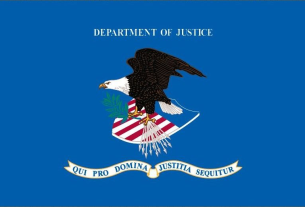TikTok, the wildly popular Chinese-owned social media app, has been at the center of a growing legal and political battle in the United States. The app, which has amassed 150 million active users in the country, faces potential banishment following its recent court loss, marking a significant moment in the ongoing debate over privacy, national security, and free speech.
Background and Legal Context
TikTok’s rise in popularity has coincided with mounting concerns over its parent company, ByteDance, based in China. The U.S. government has raised alarms about how TikTok handles American user data and the app’s potential ties to the Chinese government. These concerns prompted legislators to push for a ban or forced sale of the platform in the U.S., a move supported by both national security experts and government officials.
In April, President Biden signed a provision into law that could result in a TikTok ban by January 19, 2025, unless ByteDance sells its stake in the platform. TikTok sued the U.S. government, arguing that the law violates its First Amendment rights, claiming it unfairly targets the app based on unfounded national security risks. However, a recent ruling from the U.S. Court of Appeals rejected TikTok’s constitutional claims, reinforcing the government’s position that the law is intended to protect national security and American citizens’ privacy.
Business Implications and the Impact of a Ban
A potential TikTok ban in the U.S. would have profound consequences for both the app and the broader digital ecosystem. TikTok is more than just a social media platform; it has become an essential tool for content creators, small businesses, and influencers. Many Southern California-based creators have built lucrative careers through TikTok, relying on its algorithm to reach millions and monetize their content. In addition, small businesses use the platform as a key marketing tool, tapping into its massive user base to promote products and services. A ban could disrupt these livelihoods and alter the landscape for influencers and entrepreneurs in the digital age.
Moreover, TikTok employs a significant number of people in the U.S., particularly in Culver City, California, where it has around 500 staff members. The ripple effect of a ban would likely extend beyond individual users to the broader local economy, impacting businesses that support content creation and social media marketing.
Long-Term Impact on Global Digital Platforms
The case against TikTok is not just a localized issue for the company but signals broader concerns about data sovereignty, privacy, and the influence of foreign tech giants. The ruling could set a precedent for how governments around the world view foreign-owned digital platforms. If TikTok is banned based on national security grounds, it could lead to increased scrutiny of other international tech companies operating in countries with strained relations, particularly those with access to sensitive user data.
For other digital platforms, especially those owned by foreign entities, this case highlights the growing tension between international expansion and national security concerns. Companies like Facebook, Google, and Twitter, which collect vast amounts of user data, may soon find themselves facing similar scrutiny, particularly in regions where political tensions are high. Countries could implement stricter regulations on foreign-owned platforms or, in extreme cases, issue bans to protect local industries and data privacy.
Fairness of the Ban: Business and Free Speech Perspectives
From a business standpoint, the push to ban TikTok raises significant questions about fairness and the principles of free market competition. The U.S. government’s stance hinges on the idea that TikTok’s Chinese ownership poses a unique risk due to potential data sharing with the Chinese government. While national security concerns cannot be dismissed, critics argue that the ban could be more about geopolitical rivalry than genuine security risks. TikTok’s arguments about free speech and its claims that the law is based on speculative and inaccurate information resonate with those who view the potential ban as a form of unfair business practice.
The decision also raises broader questions about the balance between protecting national security and supporting a thriving, competitive tech industry. If the U.S. moves forward with a TikTok ban, it could set a dangerous precedent for other countries, potentially opening the door for protectionist policies against foreign tech firms. Conversely, ignoring national security risks in favor of business interests could compromise data security and public safety.
Looking Ahead: What’s Next for TikTok?
As the legal battle continues, TikTok is expected to appeal the ruling, potentially taking its case to the U.S. Supreme Court. While the final outcome remains uncertain, the broader implications for the tech industry and international digital platforms are clear. Governments will increasingly focus on data security, and tech companies will need to navigate these complex regulatory environments as they expand globally.
Whether or not TikTok is banned, the case has already prompted deeper discussions about how countries regulate foreign-owned platforms and how these platforms handle user data in an increasingly interconnected world. It’s clear that the global digital landscape is entering a new era, where the balance between security, business, and free speech will be more scrutinized than ever before.
References:
- Wendy Lee and Andrea Chang, “TikTok’s Legal Battle and the Fight for Free Speech,” Los Angeles Times
- U.S. Court of Appeals Ruling on TikTok Case, Reuters
- Merrick Garland, U.S. Attorney General, Statement on TikTok Case, Department of Justice



